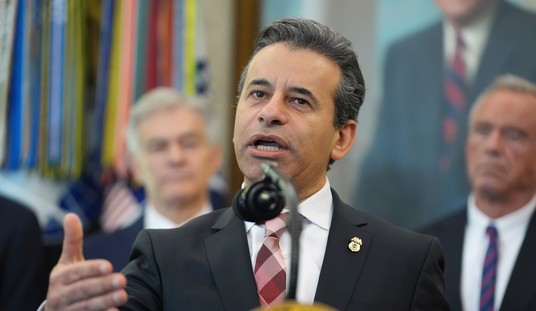California Lt. Gov. Gavin Newsom told the Los Angeles Times the approval of Proposition 63 by voters Tuesday was not only “historic progress to reduce gun violence” but “a repudiation of the National Rifle Association and the gun lobby.”
“They lost badly,” Newsom added.
Under Proposition 63, the possession of ammunition magazines that hold more than 10 rounds will be outlawed in California. The ballot proposal also requires background checks for anyone buying bullets, makes it a crime to not report lost or stolen guns, and provides a way that police can take guns away from people who are convicted of felonies.
Craig DeLuz, a spokesman for the Stop Prop 63 Committee, said during the campaign that Newsom was only backing the measure to enhance his standing with liberals for his eventual bid for governor in 2018.
“Prop. 63 is another attempt by Newsom and his one-percent, elitist friends to attack law-abiding Californians,” said DeLuz. “They want to replace the ‘War on Drugs’ with ‘the war on law-abiding gun owners’ so they can continue locking up young black and Latino men.”
Gun control was one of the hot-button issues on the ballots in four states, including California.
The National Rifle Association won only one of the contests.
Maine voters, some of whom showed up at the polls dressed in camouflage to vote against Question 3, defeated the proposal on their ballots by a slim margin, 51 percent to 48.9 percent.
Question 3 would have required background checks for all private gun sales.
“This is a great night for the people of Maine. With their freedoms in question and liberties at stake, they embraced the rights recognized in our Constitution and said no to the poorly written, unenforceable mandates of the Question 3 ballot initiative,” said NRA Institute for Legislative Action executive director Chris Cox.
Supporters saw the ballot proposal as a way to close a loophole in Maine law, which they said allowed convicted felons, domestic abusers and people with mental health problems to purchase guns through private gun sales.
Bruce Ashmore, a small-business owner, traveled the state of Maine campaigning against the proposal.
“We’re not fighting over guns,” Ashmore told the Portland Press Herald the day before the vote, “we’re fighting over our rights.”
The NRA and gun-rights advocates could only point to Maine as a state where they were victorious at the polls.
Washington state voters overwhelmingly approved Initiative 1491, a measure that will allow judges to temporarily take guns away from people deemed to be a threat, 71 percent to 29 percent.
Opponents said Initiative 1491 could be abused by ex-partners or spouses who want to make trouble for the one they formerly loved outside of divorce court.
The NRA Institute for Legislative Action warned voters on its website about Initiative 1491.
“This law would be ripe for abuse by individuals,” the NRA-ILA wrote, “that disagree with the Second Amendment, and the mere insinuation that gun ownership makes you a danger to yourself or others is offensive and insulting.”
But supporters pointed to several high-profile mass murders they claimed could have been prevented if only Washington had a law that provided for the use of an extreme-risk protection order.
Now, it does.
“This is really a victory for Washington families,” initiative campaign manager Stephanie Ervin told KIRO-TV. “We’re celebrating for the lives this measure will save.”
In another defeat for the NRA, voters in Nevada approved a gun-purchase background check ballot proposal Nov. 8, but only by about 10,000 votes.
Next page: Follow the money
Campaign finance data tracked by Ballotpedia showed Everyone for Gun Safety spent more than 5.2 million in Maine and invested over $13 million in Nevada to push the background check proposals.
Groups backing Proposition 63 in California invested more than $4.5 million to convince voters of the wisdom of stricter gun control.
How could the NRA lose three of four contests? Well, the leading gun-rights organization spent most of its time and money backing Donald Trump.
Did that mean the National Rifle Association didn’t think it had a chance of winning and was willing to let the chips fall where they may? Or could it be the NRA had another strategy?
Dave Workman, who writes for the Second Amendment Foundation, said the NRA’s plan might have been to fight the successful gun-control ballot proposals in a court of law rather than the court of public opinion at the polls.
But he also admitted the NRA is facing a new reality when it takes on Everytown for Gun Safety and its billionaire founder, Michael Bloomberg.
“I think the gun-control people have suddenly discovered that they’ve got a weapon,” Workman told National Public Radio. “And that weapon is money.”









Join the conversation as a VIP Member